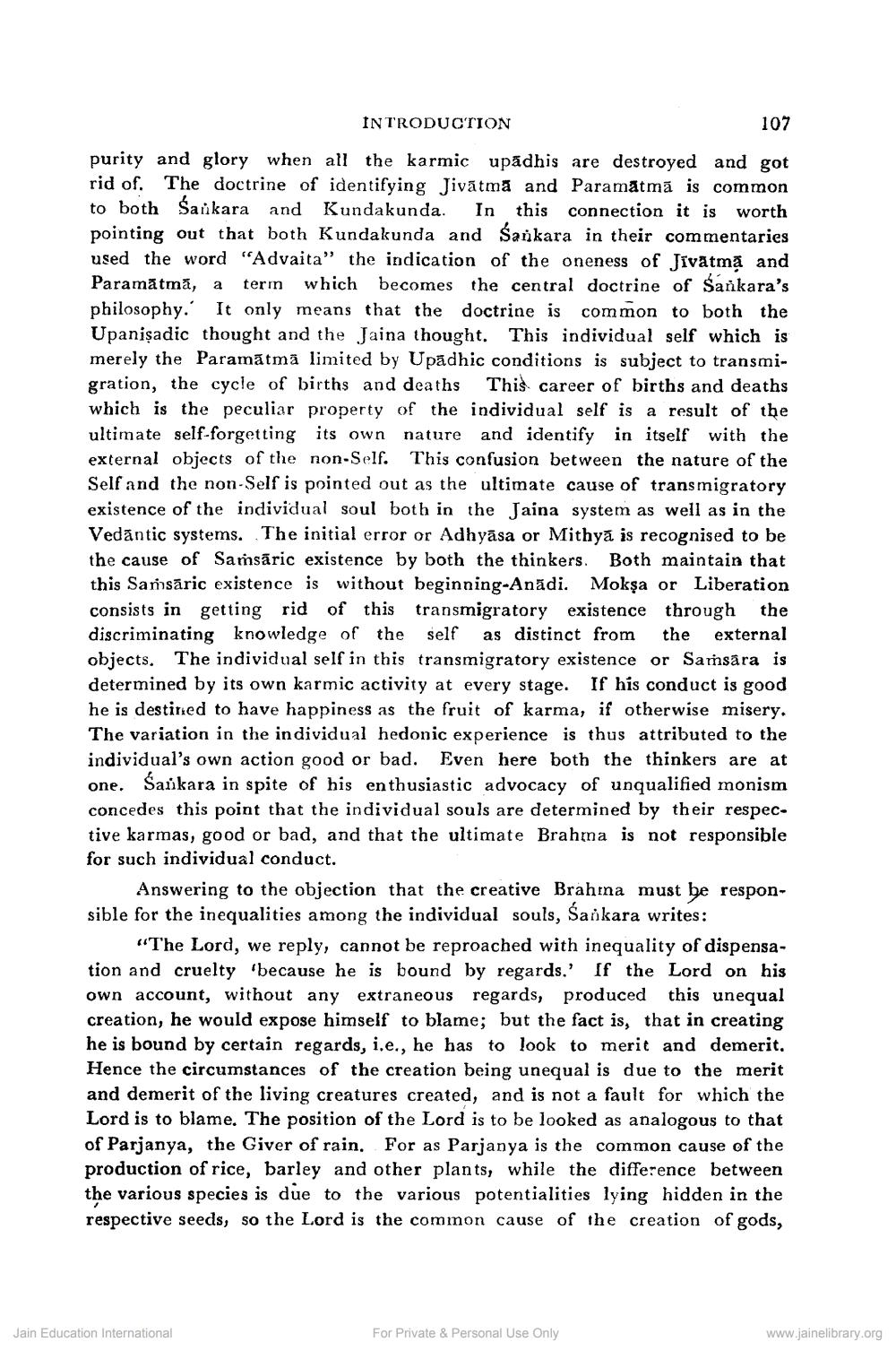________________
INTRODUCTION
107 purity and glory when all the karmic upādhis are destroyed and got rid of. The doctrine of identifying Jivātma and Paramātmā is common to both Saukara and Kundakunda. In this connection it is worth pointing out that both Kundakunda and Sankara in their commentaries used the word "Advaita" the indication of the oneness of Jivātma and Paramātmā, a term which becomes the central doctrine of Sankara's philosophy. It only means that the doctrine is common to both the Upanişadic thought and the Jaina thought. This individual self which is merely the Paramātmā limited by Upadhic conditions is subject to transmigration, the cycle of births and deaths This career of births and deaths which is the peculiar property of the individual self is a result of the ultimate self-forgetting its own nature and identify in itself with the external objects of the non-Self. This confusion between the nature of the Self and the non-Self is pointed out as the ultimate cause of transmigratory existence of the individual soul both in the Jaina system as well as in the Vedāntic systems. The initial error or Adhyāsa or Mithya is recognised to be the cause of Saṁsāric existence by both the thinkers. Both maintain that this Sansăric existence is without beginning-Anādi. Moksa or Liberation consists in getting rid of this transmigratory existence through the discriminating knowledge of the self as distinct from the external objects. The individual self in this transmigratory existence or Samsāra is determined by its own karmic activity at every stage. If his conduct is good he is destined to have happiness as the fruit of karma, if otherwise misery. The variation in the individual hedonic experience is thus attributed to the individual's own action good or bad. Even here both the thinkers are at one. Sarkara in spite of his enthusiastic advocacy of unqualified monism concedes this point that the individual souls are determined by their respective karmas, good or bad, and that the ultimate Brahma is not responsible for such individual conduct.
Answering to the objection that the creative Brahma must be responsible for the inequalities among the individual souls, Sarkara writes:
“The Lord, we reply, cannot be reproached with inequality of dispensation and cruelty because he is bound by regards. If the Lord on his own account, without any extraneous regards, produced this unequal creation, he would expose himself to blame; but the fact is, that in creating he is bound by certain regards, i.e., he has to look to merit and demerit. Hence the circumstances of the creation being unequal is due to the merit and demerit of the living creatures created, and is not a fault for which the Lord is to blame. The position of the Lord is to be looked as analogous to that of Parjanya, the Giver of rain. For as Parjanya is the common cause of the production of rice, barley and other plants, while the difference between the various species is due to the various potentialities lying hidden in the respective seeds, so the Lord is the common cause of the creation of gods,
Jain Education International
For Private & Personal Use Only
www.jainelibrary.org




